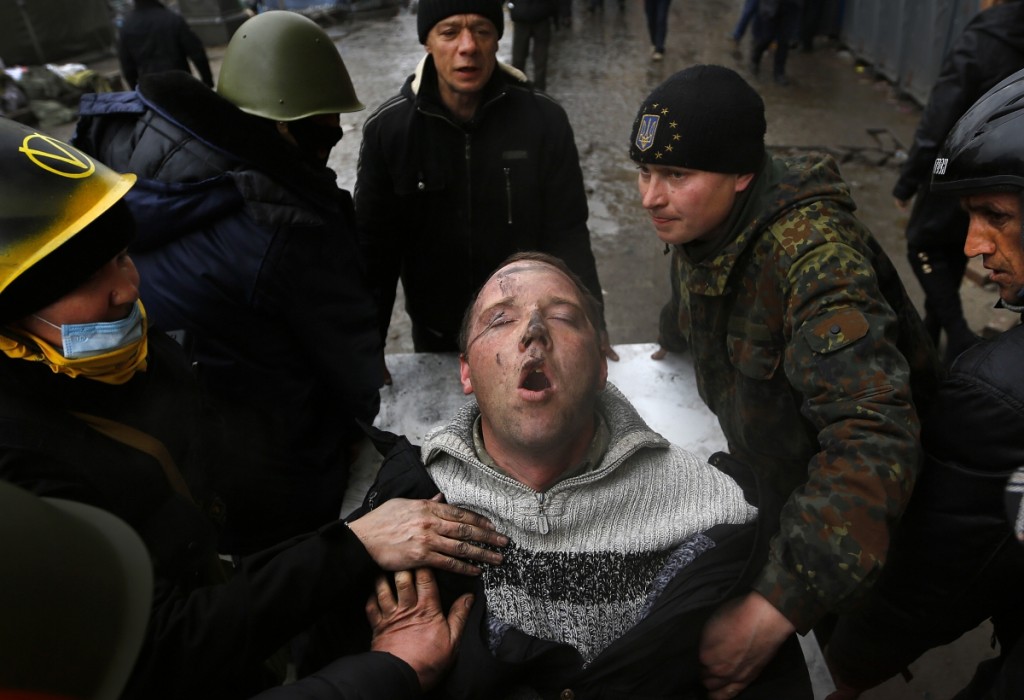A report issued on March 1, 2015 by the Moscow-based Foundation for the Study of Democracy contains chilling descriptions of the widespread use of torture and other inhumane treatment of prisoners by the Ukrainian army and paramilitary forces and by its Ukraine’s national security police. The report is titled, ‘War Crimes of the Armed Forces and Security Forces of Ukraine: Torture and Inhumane Treatment’. It is 144 pages long, half in Russian and half in English.
The information in the report is the result of interviews with over 200 prisoners released by the Ukrainian side of the war that has raged in eastern Ukraine for the past year. The interviews were conducted by researchers of the Foundation from 25 August 2014 to 20 January 2015.
The Foundation for The Study of Democracy is a civil organization in Russia (Russian-language website here). Its director is Maxim Grigoriev. The report on torture and prisoner abuse was prepared in cooperation with the Russian Public Council for International Cooperation and Public Diplomacy, presided by S. Ordzhonikidze, while assistance was provided by the Russian Peace Foundation (L. Slutsky, Y. Sutormina) and by S. Mamedov, I. Morozov, E. Tarlo, D. Savelyev, A. Chepa and other members of the Committee for Public Support of the Residents of Southeastern Ukraine.
The media tour to Donetsk, eastern Ukraine in mid-April, 2015 in which I participated met with Mr. Grigoriev in Moscow at the outset of our tour.
“Human rights are one of the key issues of concern for our foundation,” Grigoriev explained. As reports of prisoner abuse and torture became widespread last spring and summer, his Foundation decided to investigate the accusations more formally. Its first report was published on November 24 of last year.[1] The second report published on March 1 of this year includes data gathered in the first one.
“It was not difficult to gather information,” Grigoriev explains. “Once the prisoner exchanges began to take place [just prior to the ceasefire of September 5, 2014], any researcher or journalist could speak to those released prisoners who were willing to talk.”

